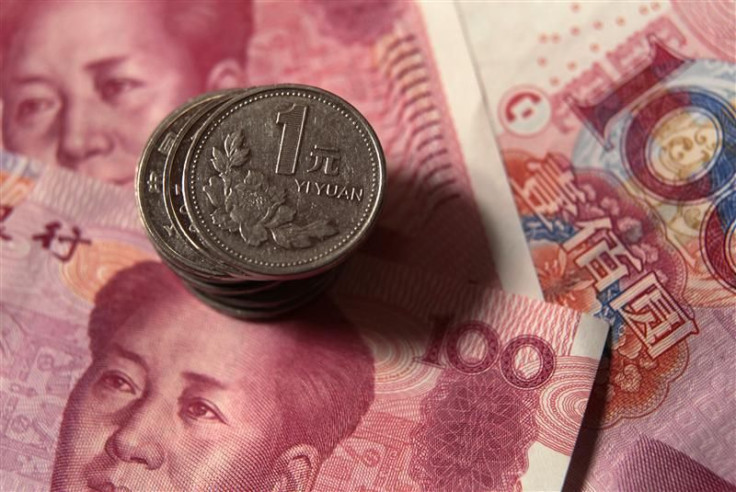China’s Interest Rate Liberalization Takes A Big Step Forward

China has taken an important step toward interest-rate liberalization with the launch of a financial instrument that allows banks to trade deposits with each other at market-determined prices. The changes went into effect on Monday.
The People’s Bank of China on Sunday published guidelines for financial institutions issuing interbank certificates of deposit (CDs), a well-anticipated move of further interest-rate liberalization.
“It is not a big surprise, as the government has mentioned that the next step of interest-rate liberalization would happen in the CD market,” Nomura's Zhiwei Zhang said in a note.
Money market rates in China soared in June after authorities allowed cash market conditions to tighten. The overnight lending rate between banks jumped to exceed 25 percent at one point as banks became reluctant to lend to each other amid a cash crunch, before falling in subsequent days.
“The introduction of CDs offers China’s fast-growing money market another standardized instrument, which, if developed properly, can help banks secure a more stable funding source and offer liquid and safer underlying securities for investment products targeting individual investors,” Societe Generale’s Wei Yao said in a note.
According to Yao, the key points of the guideline include:
- Issuers are depository financial institutions, including policy banks, commercial banks, rural credit cooperatives, and a few others.
- CDs cannot be less than 50 million yuan ($8.2 million) per issuance and issuers must report to the central bank in advance of the total amount they plan to issue in a year.
- CDs are to be invested and traded by interbank market participants, fund management firms and fund products.
- CDs can be used as collateral for repurchase agreements in the interbank market.
- CDs issued with fixed rates must be no longer than one year in duration, and must use the Shanghai interbank offered rate (SHIBOR) as the benchmark. Those with floating rates should be longer than one year in duration.
Besides CDs, the other reform measures expected to be taken by the central bank in the near term are to scrap the cap on long-dated deposits, to implement a deposit insurance scheme and to enact a bankruptcy law for financial institutions.
However, Nomura’s Zhang expects the government to maintain a cautious approach to deposit-rate liberalization generally.
We believe the government will take a cautious approach to liberalize deposit interest rates, and the full process may take several years. The economy faces downside risks and the non-performing loan ratio in banks may pick up in 2014 and 2015. Moreover, market interest rates are rising fast, which already raises financing costs for financial institutions. The government may want to avoid putting too much pressure on banks in such a situation; therefore, liberalization of the one-year benchmark deposit rate may not happen soon. The next step for the government may be extending the CD market to corporate and individuals, and liberalizing rates for deposits with maturities of five years or longer.
Winners And Losers
There will likely be winners and losers in the ongoing bottom-up and top-down interest-rate liberalization, but Bank of America's Ting Lu believes the overall impact on the economy is positive as market-determined interest rates should more efficiently allocate precious capital.
While some big banks’ net interest margin could be squeezed, some better-managed nimble banks could seize the opportunity to expand their client base.
Lu said: “We think some privileged state-owned enterprises (SOEs) might pay higher funding costs and earn less on arbitraging, but the impact on a majority of less-privileged borrowers could be rather small. Chinese savers, who have already seen a long-overdue jump in the return on their deposits and quasi-deposits in bank wealth management products (WMPs) and money market funds (MMFs), are unquestionable winners of the Interbank Negotiable Certificate of Deposits (IBNCD) through access to funds (including MMFs). Nonfinancial corporates should benefit too as a majority of their deposits are in low-return demand deposits.”
© Copyright IBTimes 2024. All rights reserved.












